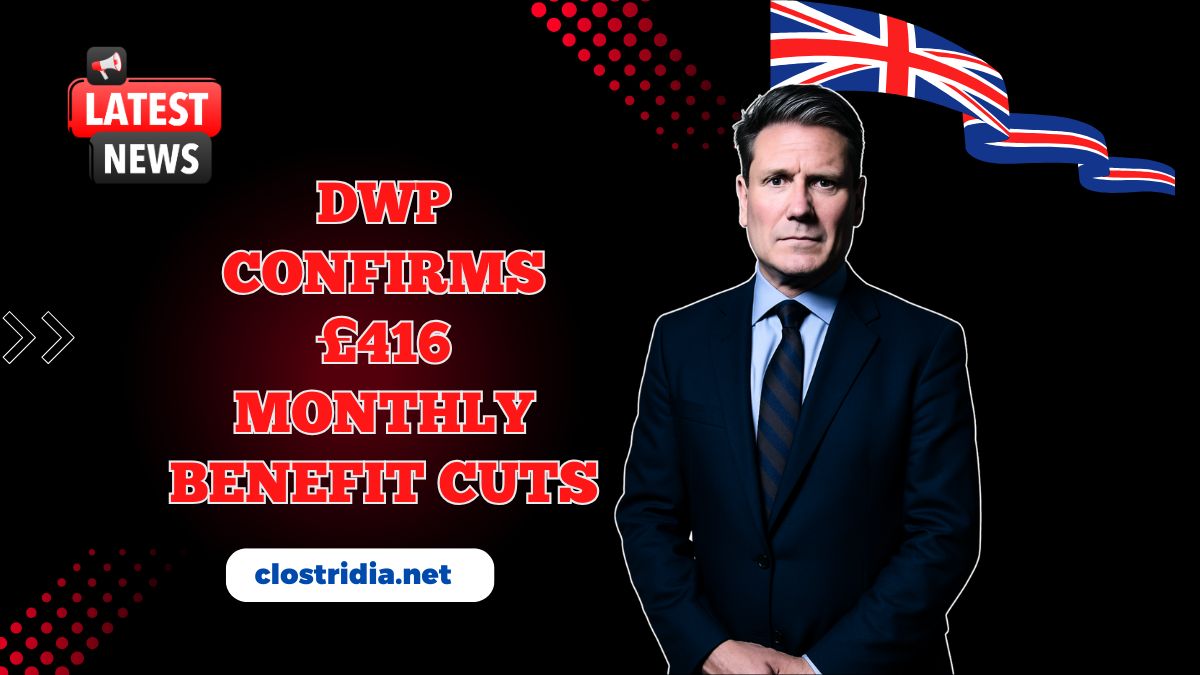The Department for Work and Pensions (DWP) has confirmed a controversial decision to cut monthly benefits by as much as £416, affecting thousands of vulnerable households across the UK.
This major policy shift, effective June 2025, is intended to reduce the growing welfare budget but has sparked concern among working families, carers, and disabled individuals.
Why Are Benefits Being Cut?
According to government statements, the UK’s welfare system has become financially unsustainable. In just five years, incapacity-related benefits have jumped from £52 billion to £65 billion. Officials argue that the system needs reform to avoid encouraging dependency and prevent fraudulent claims.
However, critics and charities argue that the cuts will disproportionately impact people who are genuinely unable to work—including individuals with disabilities, single parents, and carers—rather than targeting fraudulent or avoidable claims.
Who Will Be Affected by the £416 Benefit Cuts?
This isn’t a universal benefit reduction. The DWP has introduced targeted cuts based on benefit type and recipient profile. Below is a breakdown of the groups most likely to be affected:
| Affected Group | Potential Monthly Cut |
|---|---|
| Universal Credit (WCA) claimants | Up to £416 |
| ESA recipients with work capability | £300 – £400 |
| Single-parent families | £250 – £350 |
| Pre-retirement age individuals | £200 – £350 |
More than 450,000 households are expected to feel the impact, struggling to afford food, rent, utilities, and other basic needs.
Who Is Exempt from These Cuts?
Some groups are protected from these changes. You may not face cuts if you:
- Have a terminal illness or severe disability
- Are a full-time carer for a child with complex needs
- Face exceptional hardship verified by your local authority
If you’re unsure about your status, contact the DWP or your local council to get personalized advice.
Real-Life Stories of Struggle
These policy changes aren’t just numbers—they’re affecting real lives.
- Mary, a single mother in Birmingham, lost £300 in Universal Credit. With no childcare options, she’s struggling to job hunt and missed a rent payment.
- David, a disabled veteran in Manchester, fears that the £416 reduction could push him to rely on food banks and lose his independence.
What Can You Do If You’re Affected?
If your benefits are reduced, take immediate action to protect your financial situation:
Steps You Can Take:
- Request a Mandatory Reconsideration: File with the DWP within 30 days.
- Appeal to a Tribunal: If rejected, an independent tribunal can review your case.
- Seek Help: Contact Citizens Advice, Scope, or Turn2Us for free guidance.
Other Support Options Available
You may be eligible for additional support to offset the impact of these cuts:
- Household Support Fund – Apply via your local council for emergency help.
- Council Emergency Schemes – Cover urgent needs like rent or food.
- Food Banks – The Trussell Trust and local networks offer vital aid.
- Debt Counseling – Charities like StepChange help manage reduced income.
Money-Saving Strategies to Stay Afloat
In addition to seeking help, use these smart financial tips:
- Track Every Pound: Monitor spending closely.
- Switch Providers: Use comparison sites to save on energy and internet.
- Explore Side Hustles: Try flexible online gigs or part-time work.
- Apply for Grants: Local charities may offer emergency financial aid.
What Lies Ahead?
The long-term effects of these benefit cuts could be severe:
- Rising Poverty: More families may fall below the poverty line.
- Overstretched Services: Housing and mental health systems could face surges in demand.
- Political Fallout: These reforms may become a major issue in upcoming elections.
The £416 DWP monthly benefit cuts represent a seismic shift in the UK’s welfare landscape. While designed to curb spending, the real-world consequences are already being felt by struggling households.
If you’re impacted, don’t wait—explore support options, appeal your case, and take steps to secure financial stability.
FAQs
Who is exempt from the new DWP benefit cuts?
Individuals with terminal illness, severe disability, or those caring for children with complex needs may be exempt.
How much could I lose per month?
Depending on your benefit type, you could lose up to £416 monthly under the new rules.
What should I do if I disagree with a benefit cut?
You can file a Mandatory Reconsideration with the DWP and escalate to a tribunal if needed.
